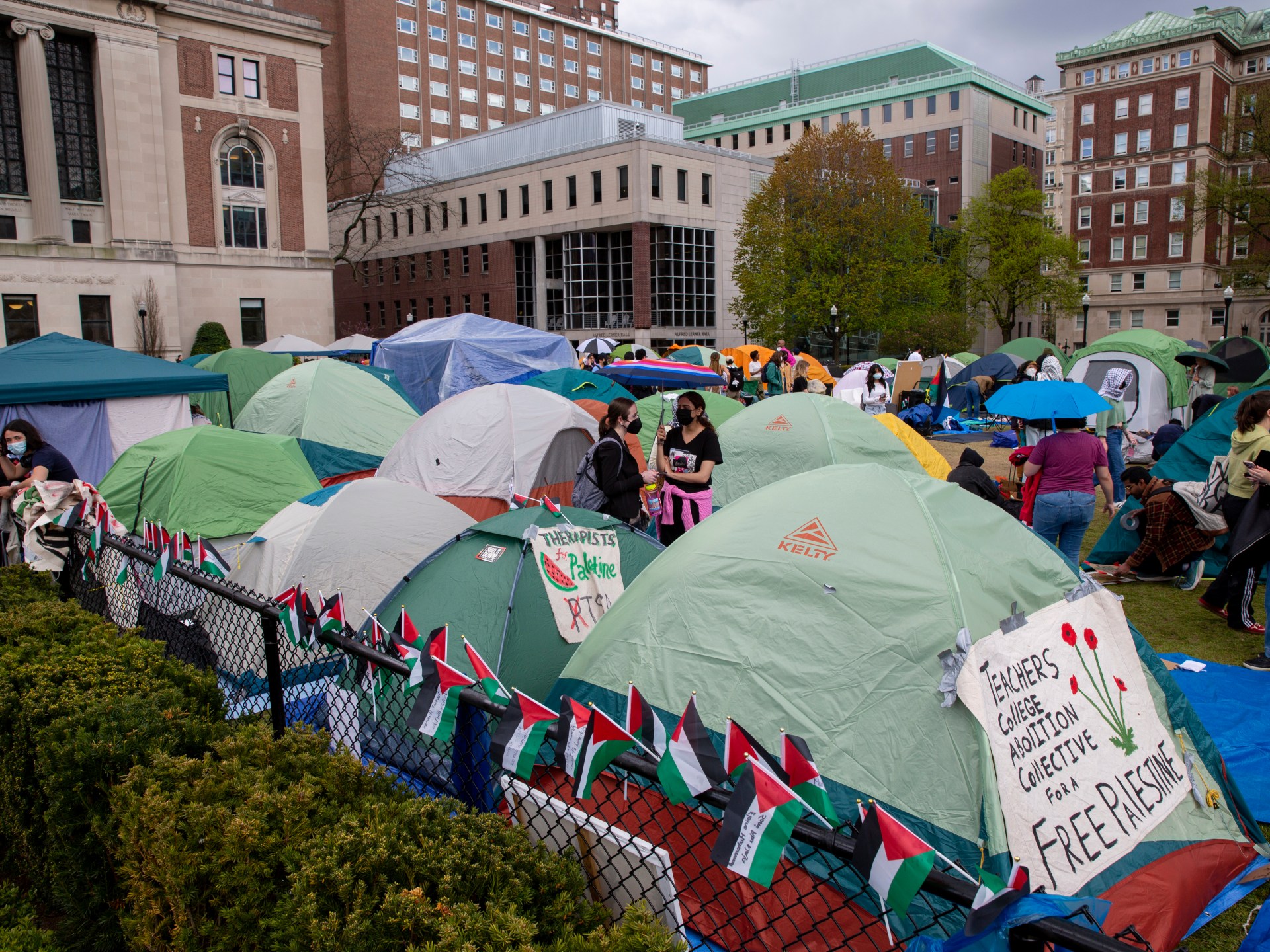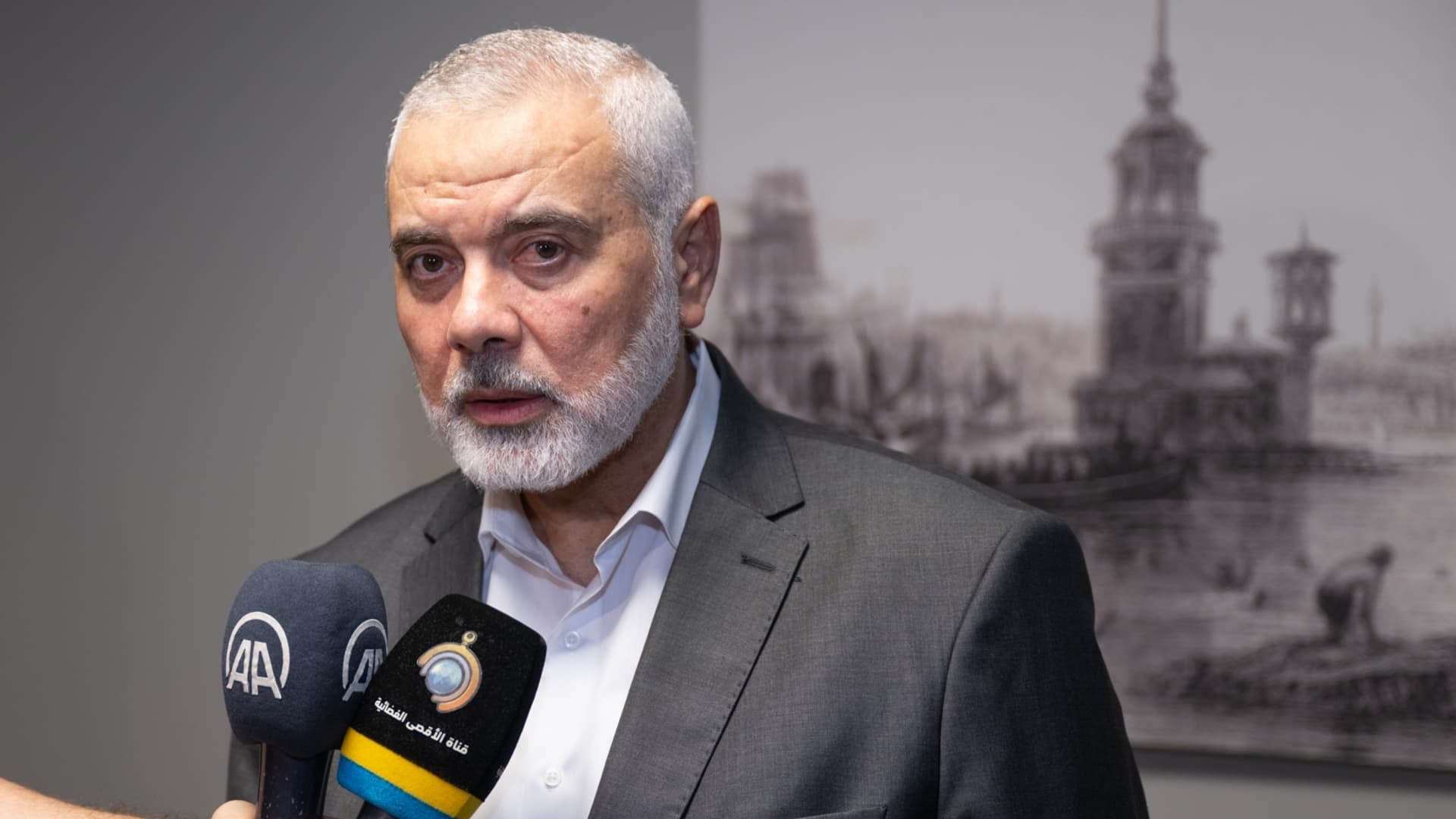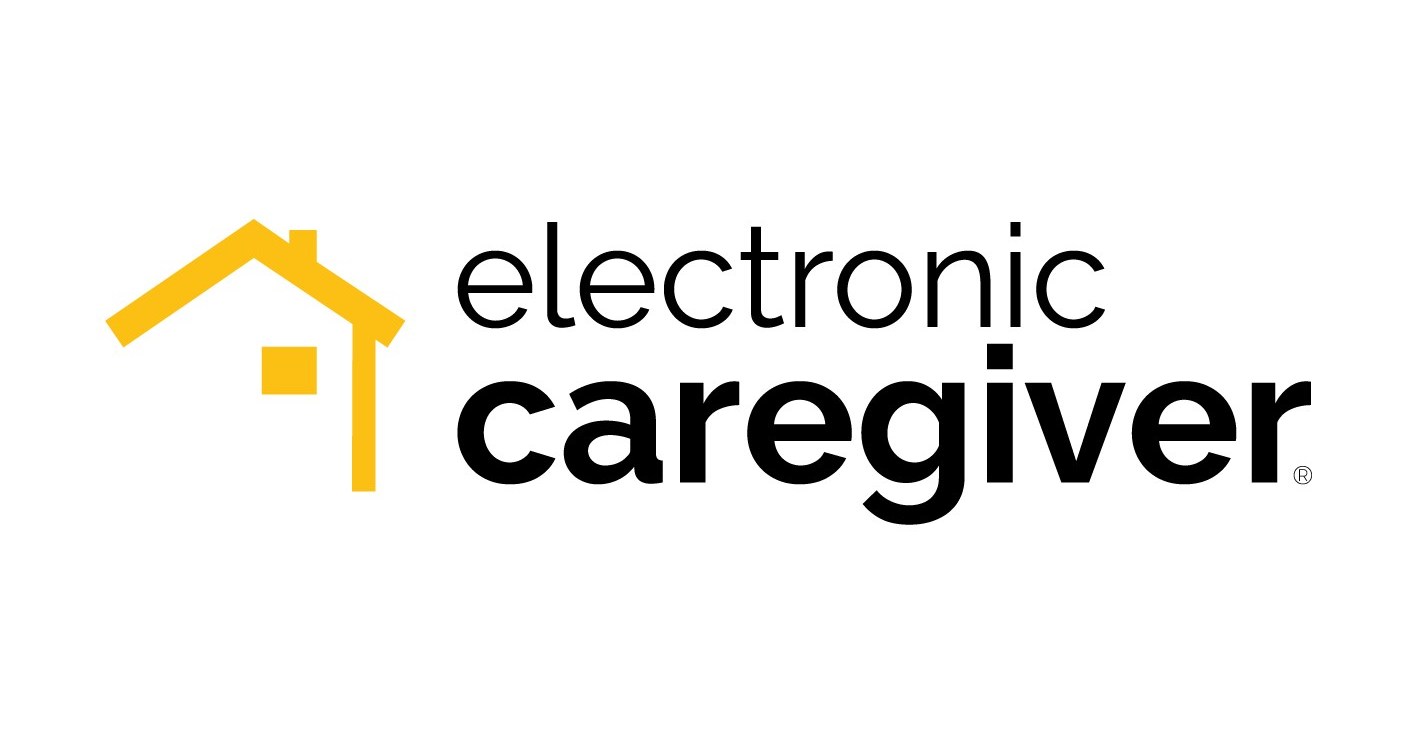Global attention has turned to universities across the United States, where students have erected encampments to demand action to end Israel’s war on the Gaza Strip.
The growing protests have taken root on the campuses of some of the country’s top academic institutions, including Columbia and Harvard.
And over the past weeks, they have spurred heated debates around freedom of speech, Palestinian solidarity activism in the US, and the use of force to disperse student protesters, among other issues.
But the students at the heart of the movement say the reason they began their demonstrations – the pressing need to end Israel’s deadly bombardment of Gaza – risks being lost amid a cacophony of voices and distractions.
“Gaza is why we’re here. Gaza is why we’re doing this,” said Rue, a student at The New School in New York City who asked to only be identified by her first name due to a fear of reprisals.
“The New School encampment is happening because we want to make sure that we are doing what we can to end this genocide,” Rue told Al Jazeera.
List of demands
Encampments have popped up at universities and colleges across the US this month, as the Palestinian death toll in Gaza surpassed the 34,300 mark, amid reports that mass graves were uncovered in the coastal enclave.
The students issued a list of demands to their respective universities, including divesting from any companies that may be profiting from the Gaza war or providing the Israeli military with weapons and other support.
They have also urged an end to reprisals against students who have spoken out in support of Palestinians and for administrators to pledge not to send police or other law enforcement agencies onto the campuses to break up their protests.
Images of throngs of New York Police Department (NYPD) officers marching onto the Columbia University campus to disperse a Gaza protest encampment earlier this week galvanised students in other parts of the US to set up their own protest sites, too.
Hundreds of students have been arrested across the country since the encampments began.
A first-year PhD student at New York University (NYU), who spoke to Al Jazeera on condition of anonymity due to a fear of reprisals, said students are acting “on the ideals and the histories that [they’re] being taught”.
“As students who are being taught in class about colonialism, about Indigenous rights, about the effect of non-violent protest across history, it would be extremely hypocritical — or it would totally undermine the point of our education — if we didn’t act,” the 25-year-old said.
“At the very least we can show that there was resistance” to what is happening in the Gaza Strip, the student added.
“The horrors in Gaza are really beyond imagining. These small acts of resistance, these are small sacrifices — [they] are nothing compared to what is happening on the ground in Palestine.”
‘Scholasticide’ in Gaza
Like other protesters across the US, many American students have said they felt an impetus to act given the US government’s long-standing support for Israel.
The US gives Israel $3.8bn in military assistance annually, and President Joe Biden has continued to provide staunch support to the country amid the Gaza war. On Wednesday, Biden signed into law a massive funding package that will provide an additional $17bn to Israel.
The Israeli military’s attacks on Palestinian students, teachers and academic institutions across Gaza during the war also have acted as a catalyst for the university protests, the students said.
Last week, a group of United Nations experts noted that 80 percent of schools in the Palestinian enclave have been damaged or destroyed since the war began in early October. Nearly 5,500 students have been killed, alongside 261 teachers and 95 university professors.
“It may be reasonable to ask if there is an intentional effort to comprehensively destroy the Palestinian education system, an action known as ‘scholasticide’,” the experts said in a statement on April 18.
“These attacks are not isolated incidents. They present a systematic pattern of violence aimed at dismantling the very foundation of Palestinian society.”
Etta, a senior at NYU who also asked to only be identified by her first name due to a fear of reprisals, told Al Jazeera that it was “appalling” to see her university fail to acknowledge the destruction of Palestinian academic institutions.
“As an institution that should have a function of education, of shaping minds, of academic freedom, they can’t even take the time to acknowledge, to mourn, to discuss the destruction of those institutions in Palestine,” Etta said.
“There’s a refusal to even acknowledge that this is going on when we’re all bearing witness [to it].”
‘Bigger than us’
As uncertainty swirls around the future of the US university encampments amid threats they will be dismantled, the students say they remain committed to continuing their protests — and to keeping the focus on what’s happening in Gaza.
“Palestine is the centre, liberation is the centre of this conversation,” said Etta.
That was echoed by Rue, the student at The New School.
“I feel like there’s a moral imperative that everyone does everything that they can to the best of their abilities to protest and fight against and end this genocide,” Rue told Al Jazeera.
“We’re a part of something that is bigger than us,” she added.
“We are part of a global movement right now and we’re really inspired and strengthened by the incredible solidarity [we’re] seeing across the United States, across different college campuses, across the world.”


:quality(85):upscale()/2024/05/06/616/n/1922564/b73a373b6638df5e2b8d12.10892976_.png)
/cdn.vox-cdn.com/uploads/chorus_asset/file/22953794/IMG_0048_2.jpg)



